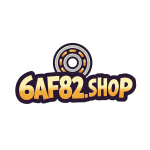This article cuts through the marketing hype surrounding TRQ wheel bearings to give you a practical assessment. We’ll explore common issues, offer money-saving strategies, and provide advice on how to ensure your safety with these aftermarket parts. We aim to address whether TRQ wheel bearings are a reliable and cost-effective option or a potential safety hazard, offering first-hand insights and actionable advice you won’t find elsewhere.
The primary draw of TRQ wheel bearings, manufactured by 1A Auto, is their lower price point compared to OEM (Original Equipment Manufacturer) parts. If you’re on a tight budget and facing a costly repair, TRQ bearings can seem like a lifeline. However, it’s crucial to understand the trade-offs involved when choosing aftermarket parts, especially those affecting vehicle safety. Are the savings worth the potential risk?
The Cost-Benefit Analysis: When TRQ Makes Sense
Before diving into the specifics of TRQ wheel bearings, let’s examine when choosing aftermarket components can be a viable option. Generally, the older and less valuable the vehicle, the more justifiable the use of aftermarket parts becomes. For example, if you’re driving a ten-year-old car with high mileage and are simply trying to keep it running without investing heavily, TRQ bearings might be a reasonable short-term solution.
Factors Affecting Wheel Bearing Longevity
Several factors influence the lifespan of a wheel bearing, regardless of its brand. These include:
- Driving Habits: Aggressive driving, frequent hard braking, and driving on rough roads can significantly shorten bearing life.
- Road Conditions: Potholes, unpaved roads, and harsh weather conditions contribute to accelerated wear and tear.
- Installation Quality: Improper installation is a leading cause of premature wheel bearing failure.
- Vehicle Type and Load: Heavier vehicles and those frequently used for towing put more stress on wheel bearings.
Let’s delve into the real-world experiences of drivers who have used TRQ wheel bearings. A common theme emerges from online forums and reviews: TRQ bearings often don’t last as long as OEM bearings. Many users report needing to replace TRQ bearings much sooner than expected, sometimes within a year or two.
Common Problems and Potential Issues
Beyond lifespan, several other potential issues have been reported:
- Noise: Premature bearing noise, such as humming or grinding, is a frequent complaint.
- Vibration: Excessive vibration while driving can indicate a failing wheel bearing.
- Play in the Wheel: Loose or wobbly wheels are a serious safety concern.
- Early Failure: Some bearings fail catastrophically, leading to complete wheel lockup.
My Personal Experience and Hard Lessons
As a mechanic with over 15 years of experience, I’ve installed my fair share of wheel bearings. I’ve personally observed TRQ bearings failing sooner than expected in several cases, especially in vehicles that are driven hard or exposed to harsh conditions. While I can’t definitively say that all TRQ bearings are problematic, my experience has made me cautious about recommending them for vehicles where safety is paramount.
For example, I once replaced a TRQ wheel bearing on a customer’s daily driver. Within six months, the customer was back with the same noise. I ended up replacing it with an OEM bearing, and the issue hasn’t returned since. This experience highlighted the potential false economy of using cheaper parts.
If you’ve decided to use TRQ wheel bearings, here are some steps you can take to maximize their lifespan:
Proper Installation: The Key to Success
Regardless of the brand, proper installation is crucial for wheel bearing longevity. Here are some tips:
- Use the Correct Tools: Invest in a quality wheel bearing press kit. Avoid hammering bearings into place, as this can damage them.
- Follow Manufacturer Instructions: Always refer to the vehicle’s service manual for specific torque specifications and procedures.
- Cleanliness is Key: Ensure all surfaces are clean and free of debris before installation.
- Grease Properly: Apply a high-quality grease to the bearing and hub assembly.
Proactive Maintenance and Inspection
Regular maintenance can help extend the life of your wheel bearings.
- Inspect Regularly: Check for play in the wheels, unusual noises, or vibrations while driving.
- Proper Wheel Alignment: Misalignment can put undue stress on wheel bearings.
- Avoid Overloading: Exceeding the vehicle’s weight capacity can accelerate wear.
- Drive Cautiously: Avoid potholes and rough roads whenever possible.
Are TRQ wheel bearings worth it?
Given the potential for premature failure, is it really worth it to consider TRQ bearings? It all comes down to your tolerance for risk and your vehicle’s specific needs. If you’re prioritizing safety and longevity, OEM or higher-quality aftermarket brands are generally a better choice.
Alternatives to TRQ: Exploring Other Options
If you’re hesitant about TRQ bearings, consider these alternatives:
- OEM Bearings: These are the most reliable but also the most expensive.
- Reputable Aftermarket Brands: SKF, Timken, and Moog are well-regarded brands known for quality and durability.
- Used OEM Bearings: Sourcing used OEM bearings from a reputable salvage yard can be a cost-effective option.
TRQ Wheel Bearing Review: Final Thoughts and Recommendations
While TRQ wheel bearings offer an attractive price point, their long-term reliability can be questionable. If you choose to use them, prioritize proper installation and maintenance to maximize their lifespan. However, for critical applications where safety is paramount, investing in higher-quality alternatives is generally recommended. The choice is yours, weigh the costs and benefits to determine the optimal solution.
| Feature | TRQ Wheel Bearings | OEM Wheel Bearings | SKF/Timken Bearings |
|---|---|---|---|
| Price | Low | High | Medium |
| Lifespan | Shorter | Longer | Longer |
| Reliability | Lower | Higher | Higher |
| Warranty | Limited | Varies | Varies |
| Application | Budget-focused | Safety-focused | Balanced |
Welcome to our hub for all things bearings! Whether you're an engineer, a student, or simply curious, we provide in-depth knowledge, the latest news, and insightful articles covering a wide range of bearing types, applications, and industry trends. Explore our resources to enhance your understanding and stay informed about the world of bearings.

